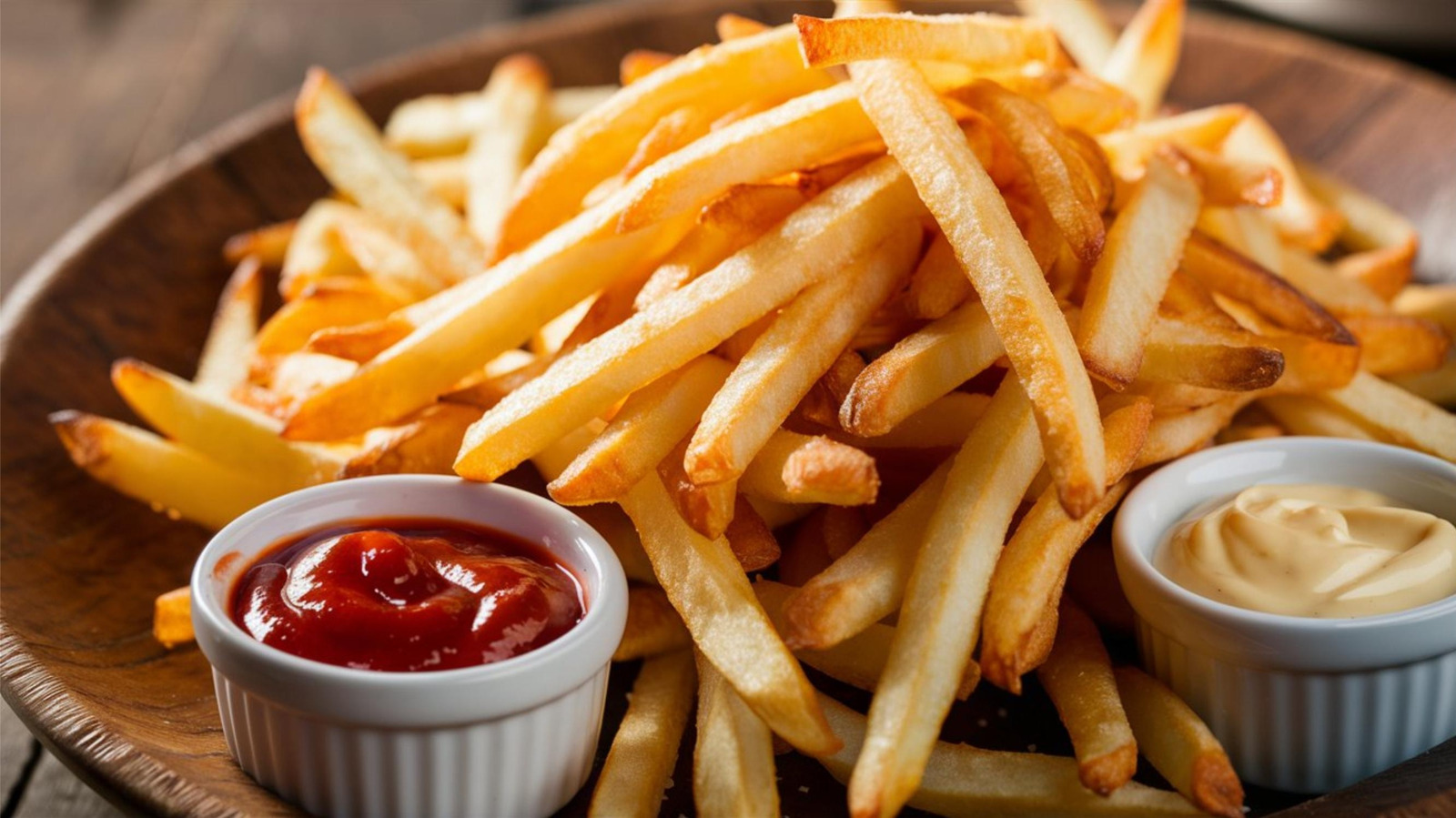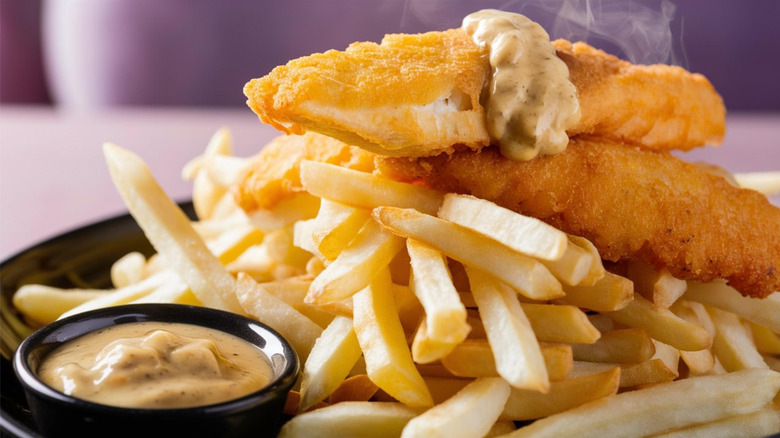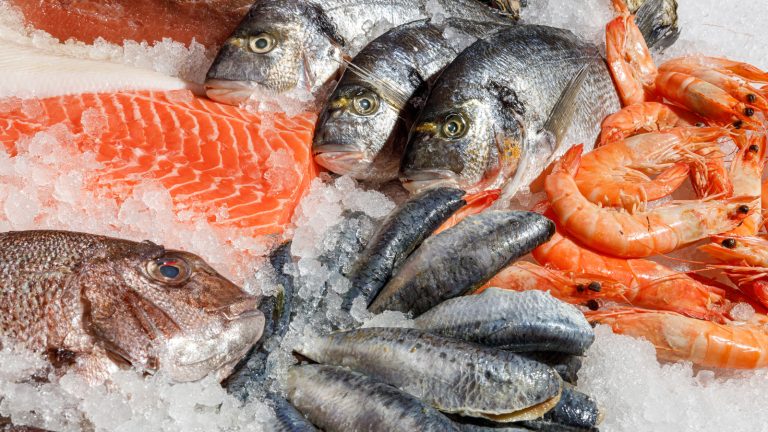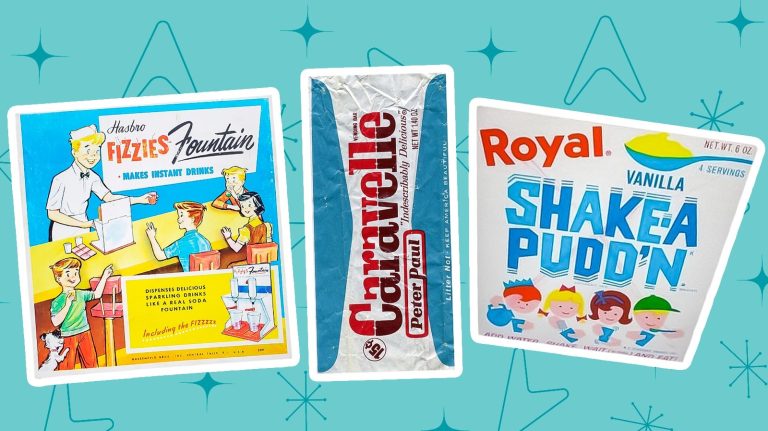For a dish of such simplicity, making fries at home is an exceptionally complex endeavor. A lot can go wrong — fries can often turn out soggy, unevenly cooked, or overly greasy. To uncover the secret for perfectly crispy homemade fries, Food Republic consulted David Davidov, recipe developer and creator of The Cooking Foodie. According to Davidov, the key to crispy fries may be sitting in your pantry: vinegar.
So why is vinegar a game-changer for crispy fries? Much like soaking potatoes in water gives extra-crispy results, a vinegar soak helps remove excess surface starch, allowing more moisture to escape during frying and preventing the dreaded sogginess. But vinegar does more than just remove starch. According to Davidov, adding vinegar to your soak creates “a stronger cell wall structure that doesn’t collapse when fried, that’s why the fries hold their shape and crunch better.” He continued, “The acid in the vinegar lowers the pH, which causes the pectin in the potato cells to firm up instead of breaking down during cooking.” By reinforcing the potatoes’ natural structure, the final product is perfect fries that are crispy and crunchy on the outside while remaining soft on the inside.
The effectiveness of a vinegar soak isn’t just based on theory, and Davidov assured us that this method has been tried and tested. “I’ve done side-by-side tests,” he told us, “and the vinegar-soaked batch always stays crisp longer, even after cooling.” So next time you’re making a batch of homemade fries, run to the pantry and grab some vinegar!
The best kind of vinegar to soak your fries in
Technically, you can soak your fries in any vinegar before cooking — but we recommend you avoid strongly flavored or colored vinegars like balsamic or red wine as they are likely to infuse your fries with an overpowering tang. According to David Davidov, the ideal candidate to use is white distilled vinegar. “If your main goal is structure and texture, plain white vinegar is perfect. It’s strong enough (usually around 5% acidity) and has no flavor that lingers.”
If you’re looking to mix up the flavor profile of your fries, Davidov recommended using a mildly flavored vinegar — like malt or apple cider. “They bring a subtle tang or fruitiness that complements fried foods,” he told us. So by adding a distinctive but not overpowering flavor to your fries, you can take your meals to the next level. Next time you’re making homemade fish and chips, have a go at soaking your fries with some malt vinegar to truly infuse them with that tangy, British-chippy authenticity.
The most important thing to remember is that the vinegar has to be properly diluted. “Pure vinegar can overpower and make the potatoes taste sharp if not rinsed or dried properly,” Davidov warned us. For best results, he recommended a simple ratio: “Soak the cut potatoes in a solution of 1 tablespoon of vinegar per 1 liter of water for 30–60 minutes before the first fry.”






